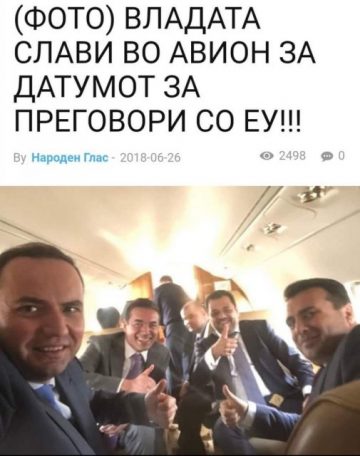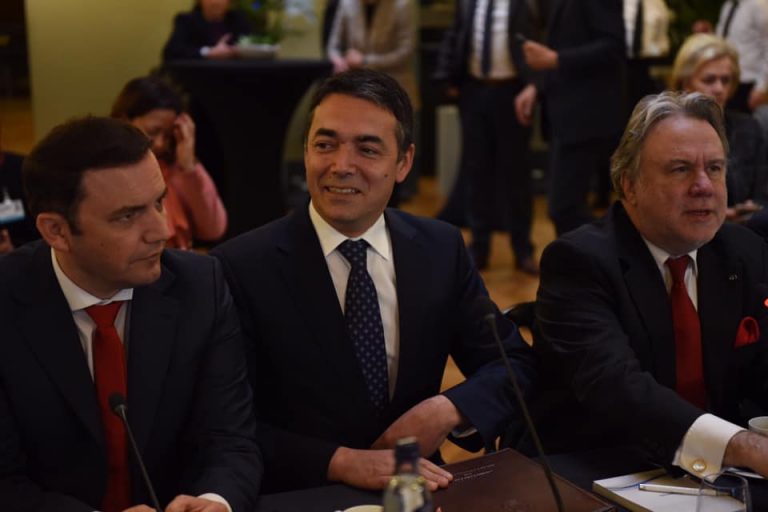Foreign Minister Nikola Dimitrov is reportedly planning an urgent trip to Berlin, to plead that Germany pressures France and the Netherlands and obtain their approval to open European Union accession talks with “North Macedonia” this summer.
As the Magazin news site reports, Dimitrov is preparing the trip following the shocking statement from EU Commissioner Johannes Hahn, who is one of the strongest supporters of the Zaev regime in Brussels, that despite the humiliating name change, Macedonia would only receive a recommendation for what Hahn called a “preparatory stage of negotiations”.
Hahn made the announcement during his statement befor ethe AFET Committee of the European Parliament, where he acknowledged that, even with the Greek veto presumably out of the way, several EU countries remain opposed to opening accession talks with Macedonia and Albania. Hahn didn’t name the countries, but it is widely assumed it is France and the Netherlands, who blocked the opening of accession talks during the 2018 summit as well. Zaev tried to put on a brave face after the rejection and claimed that Macedonia received an ironclad recommendation to open the talks this summer, and used it to continue to push for the name change. But, yesterday Zaev was forced to acknowledge that the European Council decision this summer would at best mean opening accession talks late in 2019, or possibly in early 2020.

According to Magazin, EU diplomats warned Zaev and Dimitrov that with antics such as declaring the EU accession talks date a “done deal” or an “ironclad commitment” the two are jumping the gun and leaving a bad impression in skeptical EU member states, which may only harden their negative stance. Issues France and the Netherlands have with Macedonia is the lack of implementation in the promised reforms in the judiciary and the fight against corruption. On the one hand, Zaev is ruling in an authoritarian manner, with hundreds of opposition officials from the highest level down to junior members being charged in politically driven cases. Zaev received encouragement for his actions from Hahn himself, who asked him to use a mixture of Balkan and European approaches to get to the needed 81 votes in Parliament and rename the country.
But this Balkan approach also meant that members of Parliament who were blackmailed with politically driven corruption or even “terrorism” charges will have to receive equally politically driven selective pardons, which is now being raised as an issue in Brussels.
Another issue, according to Magazin, is whether Macedonia wants to have its fate determined together with Albania, or separately. The name change project is seen as a success in Brussels and that earns “North Macedonia” a lot of credit to request opening of EU accession talks, but some of the key Government officials tasked with the EU agenda are ethnic Albanians, and they may be trying to pull Albania along with Macedonia, risking the prospects of both countries. Albania is facing a political crisis similar to the one Zaev created in Macedonia in 2015, with violent opposition protests and boycott of Parliament, and crime and corruption at the highest levels of Government in both countries erodes the case for accession talks.





Comments are closed for this post.